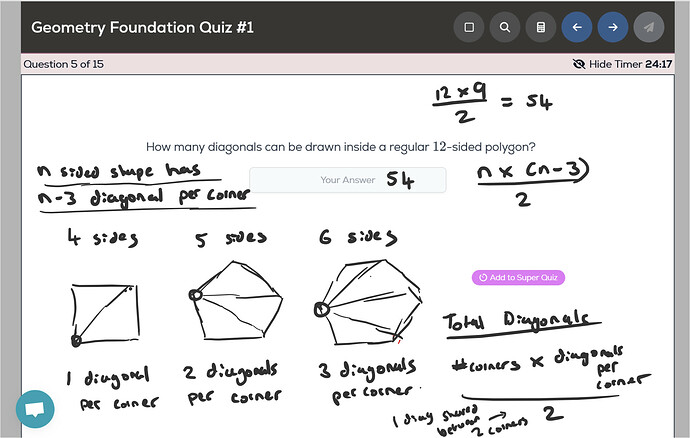Can someone please explain this in more detail?
You should apply the “Create a Smaller Example” strategy here with a square or pentagon to figure out what’s going on:
For a square we can see that there:
- 1 diagonal per corner
- 4 corners
So we should have 1 * 4 = 4 diagonals.
However, a diagonal is shared between 2 corners, so we need to divide this by 2. So, a square has 2 diagonals in total.
We essentially need to do (# corners * diagonals per corner) / 2
To figure out the number of diagonals in a corner, try with some smaller examples:
| Shape | # Corners/Sides | # Diagonals per corner |
|---|---|---|
| Square | 4 | 1 |
| Pentagon | 5 | 2 |
| Hexagon | 6 | 3 |
Now, try and apply it to the 12-sided shape.
1 Like
Got it thank you!!

